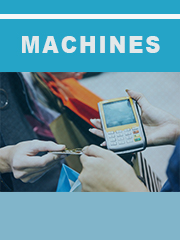TOP CATEGORY: Chemicals & Materials | Life Sciences | Banking & Finance | ICT Media

Download Report PDF Instantly
Report overview
The "Global Automated Liquid Handling Robots Market" was valued at US$ 3.10 Million in 2024 and is predicted to reach US$ 5.89 Million by 2030, exhibiting a Compound Annual Growth Rate (CAGR) of 11.3% during the forecast period (2024-2030). The influence of COVID-19 and the Russia-Ukraine War were considered while estimating market sizes
The global key manufacturers of Automated Liquid Handling Robots include Tecan Group Ltd, Beckman Coulter,Inc., Eppendorf SE, Echo Robotics, Hamilton Company, Hudson Robotics, PerkinElmer, Labman Automation and Isogen Lifescience, etc. in 2024, the global top five players have a share approximately % in terms of revenue.
Automated Liquid Handling Robots are robots used in Biological laboratories which perform a number of liquid handling tasks that are otherwise done manually. Typically liquid handling robots are used for pipetting, sample preparation, and microplate washing.They help you minimize human error, increase precision and accuracy, and speed up a lab workflow. They are successfully being used to automate a variety of workflows, as diverse as sample preparation for PCR or mass spectrometry; DNA extraction for subsequent analysis such as next-generation sequencing (NGS); and performing cell-based assays or ELISAs for drug screening.
This report aims to provide a comprehensive presentation of the global market for Automated Liquid Handling Robots, with both quantitative and qualitative analysis, to help readers develop business/growth strategies, assess the market competitive situation, analyze their position in the current marketplace, and make informed business decisions regarding Automated Liquid Handling Robots. This report contains market size and forecasts of Automated Liquid Handling Robots in global, including the following market information:
Automated liquid handling robots have become integral to modern laboratories, providing precision and efficiency that manual pipetting cannot match.
Percentage of Users: 45%
Percentage of Users: 35%
Percentage of Users: 15%
Percentage of Users: 3%
Percentage of Users: 2%
The market for automated liquid handling robots is expected to continue growing, driven by advancements in technology such as artificial intelligence and machine learning, which are enhancing the capabilities and efficiency of these systems. Integration with laboratory information management systems (LIMS) and the development of user-friendly interfaces are also making these robots more accessible to a broader range of end users.
Automated liquid handling robots are transforming laboratory workflows across various sectors. Their ability to improve accuracy, efficiency, and safety makes them indispensable tools in modern laboratories.
We has surveyed the Automated Liquid Handling Robots manufacturers, suppliers, distributors and industry experts on this industry, involving the sales, revenue, demand, price change, product type, recent development and plan, industry trends, drivers, challenges, obstacles, and potential risks.
Total Market by Segment:
By Type:
By Application:
By Region and Country:
Competitor Analysis
The report also provides analysis of leading market participants including:
Key Players Include:
Outline of Major Chapters:
Chapter 1: Introduces the definition of Automated Liquid Handling Robots, market overview.
Chapter 2: Global Automated Liquid Handling Robots market size in revenue and volume.
Chapter 3: Detailed analysis of Automated Liquid Handling Robots manufacturers competitive landscape, price, sales and revenue market share, latest development plan, merger, and acquisition information, etc.
Chapter 4: Provides the analysis of various market segments by type, covering the market size and development potential of each market segment, to help readers find the blue ocean market in different market segments.
Chapter 5: Provides the analysis of various market segments by application, covering the market size and development potential of each market segment, to help readers find the blue ocean market in different downstream markets.
Chapter 6: Sales of Automated Liquid Handling Robots in regional level and country level. It provides a quantitative analysis of the market size and development potential of each region and its main countries and introduces the market development, future development prospects, market space of each country in the world.
Chapter 7: Provides profiles of key players, introducing the basic situation of the main companies in the market in detail, including product sales, revenue, price, gross margin, product introduction, recent development, etc.
Chapter 8: Global Automated Liquid Handling Robots capacity by region & country.
Chapter 9: Introduces the market dynamics, latest developments of the market, the driving factors and restrictive factors of the market, the challenges and risks faced by manufacturers in the industry, and the analysis of relevant policies in the industry.
Chapter 10: Analysis of industrial chain, including the upstream and downstream of the industry.
Chapter 11: The main points and conclusions of the report.